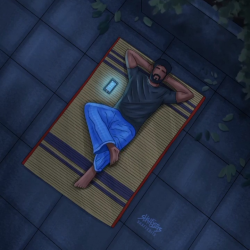

"Welcome to the horrifying and dark realm of medieval torture techniques, where anguish and agony were elevated to a kind of art. This investigation delves into the dark world of five of the most gory methods used in this unsettling period. Get yourself for a trip into the macabre, where the worst aspects of humanity's nature rule supreme and cruelty has no boundaries."
1. The shelf
This relatively straightforward torture tool was first used in the Tower of London in 1420 by the Duke of Exeter. It gained notoriety because it could cause prisoners to endure extreme pain in order to force them to make confessions, many of which were false. The victim was restrained by ropes that were stretched past their breaking point and fastened to a wooden object, either a board or a ladder, while a mechanism of cranks was worked.
The victims of the abuse would frequently become unable to walk. Religious reformer Anne Askew, who was found guilty of heresy in 1546, was rendered immobile by her ordeal on the rack and required assistance from a chair to be transported to the stake, where she would be burned alive at Smithfield.
2. The wheel that breaks
a kind of torture that seemed more intended as a brutal means of execution than as a means of eliciting confessions or information. The wheel was essentially the same as the ones seen on wagons, but it had cogs or teeth inserted in it, which the terrified victim was chained to while their limbs rested between the cogs.
The torturer would smash the victim's limbs over the wheel with a hammer. The victim would suffer for a long time, and eventually, when they were either dead or barely alive, the wheel would be raised for the public to see.
The prisoner might also be used by tying their feet to the ground and securing them to the exterior of the wheel. The victim's shackled body would shatter as the wheel was turned, frequently leading to instantaneous death.
3. Torturing rats
This type of cruel torture represents the darkest reaches of human imagination and what it is willing to do for the purpose of retribution. A rat was placed on the victim's chest, and they were restrained to a table on their back. The rat was caught and held in place by a metal or iron bucket or container.
The rat would then become frightened by the heat and attempt to flee when a fire was lit on top of the container. The creature would opt for the softer choice, desperately digging its way down into the victim's chest since it was unable to escape the metal container.
4. The footwear
Because the devices used to crush bones and limbs were easy to construct and design, this method of torture was widely utilized throughout the Middle Ages. The boot, sometimes known as a "Spanish boot," was used to fit tightly on the legs of people wearing wooden or iron boots. It functioned similarly to a rack. The victim's feet would subsequently suffer bone fractures as a result of the insertion of wooden wedges that were hammered or malletted into a tighter position.
5. Defamation
Flaying is a kind of torture with religious overtones that dates back to the Roman era. It was employed as a brutal and slow way to execute a victim. It was initially utilized by the Assyrians between 883 and 859 BC. The brutal procedure is portrayed in ancient carvings, where a victim's skin is cut off with knives. In the middle ages, it was still in use.
The victim would either survive or die, usually from shock or catastrophic blood loss, depending on how much skin was taken.


